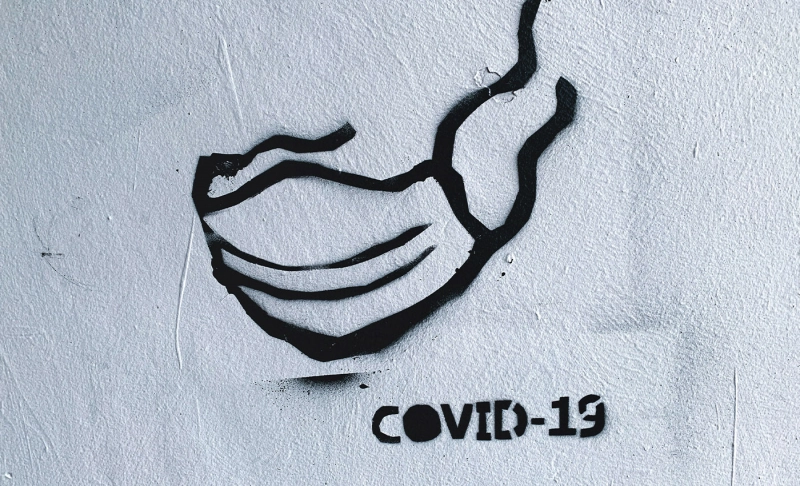By: Ishita Goel
September 2 2021
The SakCu mask showed a filtration efficiency of 50 percent using a silver-copper nanolayer, but UNAM's study has not yet undergone peer review.
Claim ID 0e6b0a22
The SakCu mask showed a filtration efficiency of 50 percent using a silver-copper nanolayer, but UNAM's study has not yet undergone peer review.On August 26, 2021, a university in Mexico, the National Autonomous University of Mexico (UNAM), announced the development of an antimicrobial mask that could inactivate the COVID-19 virus. The Materials Research Institute, led by Sandra Rodil, created "SakCu," a silver-copper layer mask. "Sak in Mayan means silver, and Cu is the acronym for the element copper." The metals have been proven with antiviral, antibacterial, and even antifungal properties.
SakCu is a three-layer mask. "The outer and inner ones are made of cotton and the middle one is made up of silver-copper nanolayers deposited in polypropylene." The report informed that the nanolayer is between 30 and 40 nanometers thick, consisting silver-copper mixture, which offers "double protection against viruses and bacteria."
The mask's design was created using natural and reusable textiles to address mask usage and disposal problems. A polypropylene filter interlayer coated with SakCu can be "washed up to 10 times without losing its biocidal properties."
For the smallest aerosol-like particles, the filtration efficiency is 50 percent and for 2.5-micron particles, it is between 80 and 90 percent. The filtering is known to be "quite good" and "if drops with viruses or bacteria fall on it, in a few hours they will be inactivated."
The Hospital Juárez de México in collabration with UNAM tested the nanolayer of the mask. It was observed the results were based on the viral concentration; "if it was high, the virus disappeared by more than 80 percent in a few eight hours and if the viral load was low, in two hours none of the virus RNA was detected." The COVID-19 membrane breaks, and its RNA is damaged after it contacts the silver-copper nanolayer.
The cytotoxicity studies were carried out in partnership with UNAM and the National Rehabilitation Institute (INR) to rule out any potential risks associated with using a mask on human skin. There was no cytotoxic effect and no greater risk with humidity. Further, "the synthetic fabric was subjected to intense airflow for 24 hours" to check that there was no release of the metal from the mask, and the result was a "there was no release of silver or copper."
Researchers are working on numerous factors to combat the COVID-19 pandemic, which is on the rise. Multiple studies have suggested that metals can be used to make the COVID-19 virus dormant.
A paper published on May 28, titled "Antiviral surfaces and coatings and their mechanisms of action," said "Copper" is one of the most effective and simplest of the materials to be integrated. But the increased exposure to copper would need careful consideration in terms of other health effects.
The paper pointed out "unwanted environmental effects caused by leaching may be one of the most significant issues to be considered in the deployment of antiviral surfaces."
Another paper was published in the American Institute of Physics(AIP) on March 31, 2021, titled "Fight against COVID-19: The case of antiviral surfaces." The paper debated the various nanometals that are effective in inactivating the COVID-19 virus. The research focuses on the fact that ''Rapid development of antiviral surface coating materials would certainly benefit from the multidisciplinary collaboration between materials science, chemistry, and environmental and biomedical sciences."
Both the papers focussed that the design of developments involves many steps considering low toxicity, health issues, influence by other environmental conditions, absorption, long-lasting efficiency, sustainable fabrication, to list a few when metal is taken into consideration.
"SakCu" mask research lacks evidence to be considered that it kills the coronavirus which causes COVID-19. Several credible news reports have said that UNAM's Materials Research Institute research has not been peer-reviewed.
Indeed the tests and researchers by UNAM mentioned in the report in collaboration with other organizations and universities are not publically available to understand the details of the research. There is a lack of information regarding the mask. Hence the claim is unverifiable as there is only a preliminary report on the mask.



